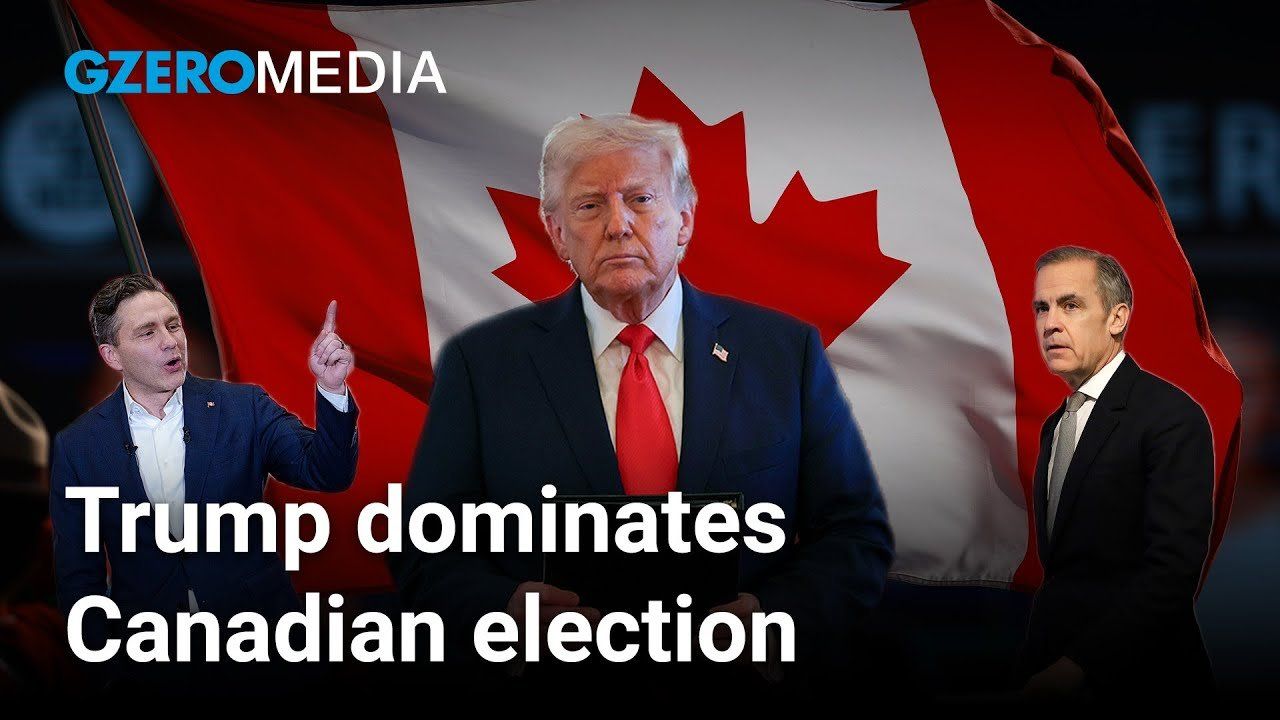Special interview: Canadians head to the polls — and into the Trump vortex

With just over a week until the Canadian election, GZERO’s Tasha Kheiriddin sat down with two senior advisors at Eurasia Group to get their take: Vice Chairman Gerald Butts, who is a former advisor to Liberal Prime Minister Justin Trudeau, and John Baird, former Cabinet minister under Conservative Prime Minister Stephen Harper.
Here’s what they had to say:
Why is Canada in an election campaign? “The prime minister needed a mandate from the people, not just his party,” said Butts, referring to newly minted PM Mark Carney, who took over from Trudeau in March.
Baird was more blunt: “Carney wanted to separate himself from the NDP–Trudeau era.” Which he seems to be doing: Under his watch the Liberals have soared nearly 20 points in the polls and are currentlypredicted to form a government.
Who are the main players? Carney, the former governor of the Bank of Canada and the Bank of England, presents “a safe, fiscally responsible concept” in Butts’ view. His main rival, populist Conservative leader Pierre Poilievre, brings “a fresh approach” according to Baird, who served with Poilievre in Parliament. He sees Poilievre as “best able to speak to US President Donald Trump and his administration.”
What’s really on the ballot? Themain issue is who can most effectively deal with Trump, whose tariffs and musings about making Canada the “51st state” have enraged Canadians. So far, voters givetop marks to Carney on that question. But whichever party wins, Butts and Baird agree that the next PM faces a hostile White House. “We’re starting from scratch,” warned Butts, citing the breakdown in what used to be one of the world’s closest bilateral relationships.
Minority or majority? Both men think that a minority government would be a bad outcome. “You don’t want to be checking in with a party leader with 8% in the polls before talking to the president of the United States,” said Butts, referring to Canada’s smaller parties, the NDP and Bloc Québécois. “It’s the tail wagging the dog,” added Baird.
Advice to the next PM for dealing with Trump? “Don’t get ‘Zelenskied’ — and be prepared,” they agreed. And to the victor go the spoils, even if that victor will take over at one of the most fraught moments in Canada’s history.
“The worst day in government,” Baird quipped, “is still better than the best day in opposition.”
Watch the full interview above.